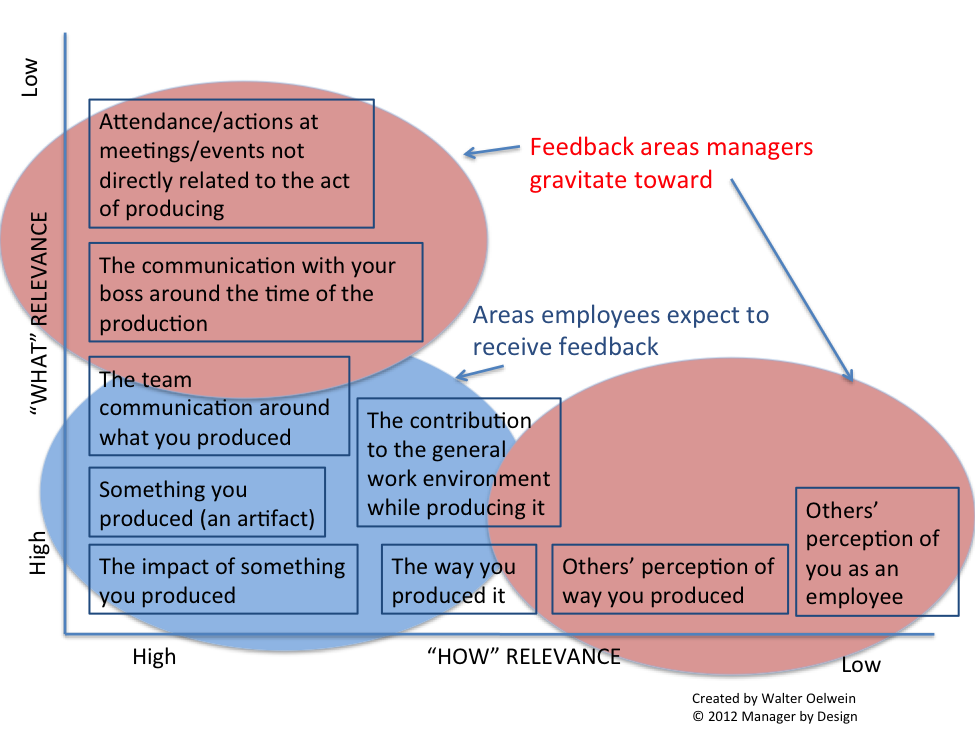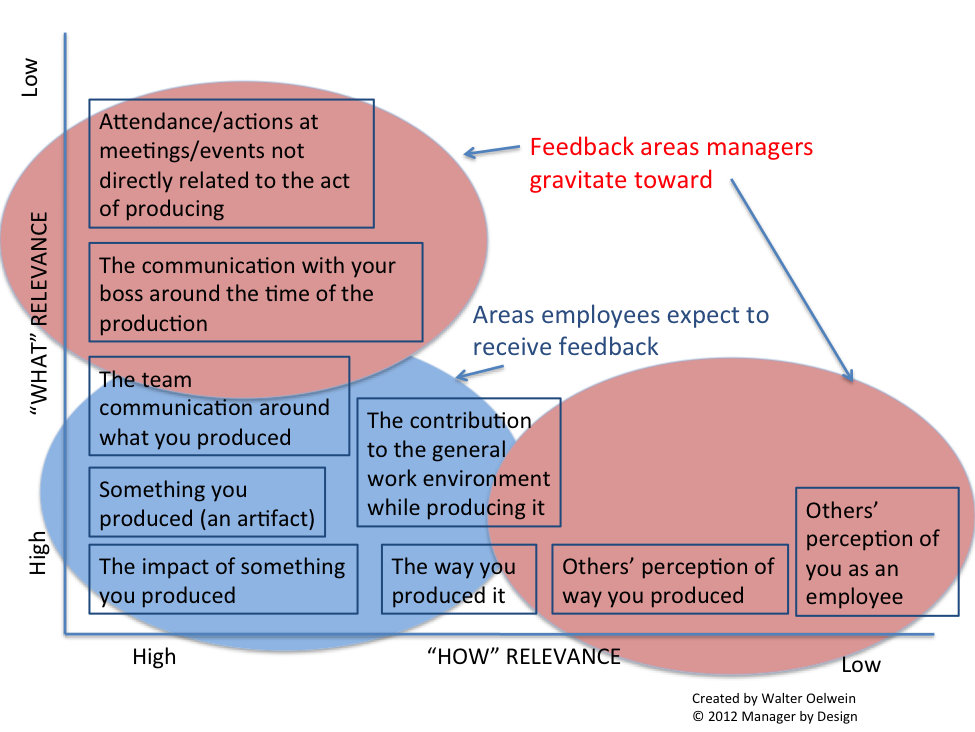A tool for how to tell if feedback is relevant to your job
Many employees suffer though poorly given feedback by their manager. But sometimes it is hard to figure out exactly why it is poor feedback. One reason that feedback given by a manager is often poor – even if it is specific, immediate and behavior-based (markers of good feedback) — is that it is not entirely relevant to the employee’s job.
Oh, the feedback from your may seem relevant, because it is job-related. But it isn’t really job related. To help explain, I created this model of the areas managers have been known to give feedback on.
You’ll see in the model that there are a lot of areas that managers can give feedback on. So one would hope that a manager would be judicious and be focused on the areas most relevant to the employee’s work and the impact of that work.
However, as the circles show, managers often default to more extraneous areas of job performance, such as perceptions of others and behaviors in meetings that are indirect (at best) to job outcomes. Read more
A second phantom job many employees have: Managing perceptions of others
In my previous article, I shared a model to determine the relevance of the performance aspect of performance feedback that many managers give to employees. Here’s the model:
In looking at the upper left corner of this model, many managers create, via the act of giving performance feedback, a second job for the employee: How the employee performs in front of the boss.
So now the employee has two jobs: 1. The job and 2. The job of performing in front of your boss.
The model reveals also in the lower left corner that when a manager gives performance feedback, a third job is often created:
3. The job of managing the perception of others in how you perform your job. Read more
Performance feedback must be related to a performance
Have you ever received performance feedback about what you say and do in a 1:1 meeting?
Have you ever received performance feedback about your contributions to a team meeting?
Have you ever received performance feedback about not attending a team event or party?
Were you frustrated about this? I would be. Here’s why:
The performance feedback is about your interactions with your manager and not about what you are doing on the job. This is an all-too-common phenomenon.
If you are getting feedback about items external to your job expectations, but not external to your relationship with your boss, you aren’t receiving performance feedback. You’re receiving feedback on how you interact with your boss. The “performance” that is important is deferred/differed from your job performance, and into a new zone of performance – your “performance in front of your boss.”
OK, so now you have two jobs. 1. Your job and 2. Your “performance in front of your boss.”

